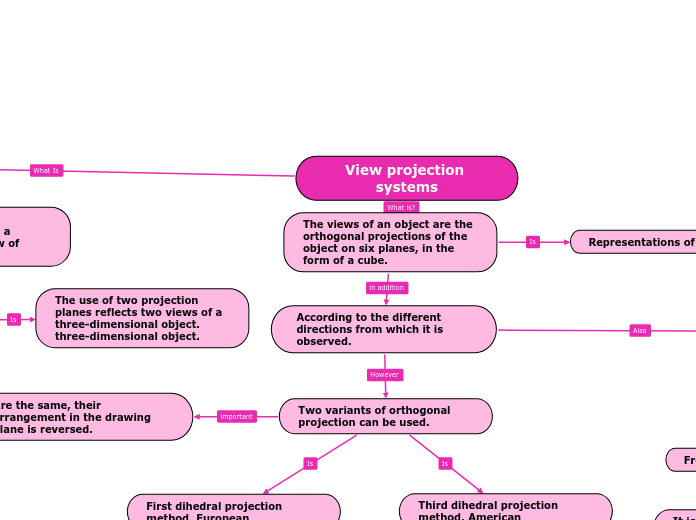によって angie tatiana moyano pardo 1年前.
245
View projection systems

によって angie tatiana moyano pardo 1年前.
245

もっと見る
Third dihedral projection method, American
The object is located on the observer and the projection plane.
The image is projected at the observer's position inside the cube. it is represented at an angle of 90°.
First there is the observer, then the projection plane and finally the object.
First dihedral projection method, European
The plane of projection is located at the observer and the object.
First there is the observer, the object object and finally the projection plane.
Place a floating stone inside a trihedron and project its views onto the faces.
Types of orthogonal projection
Projection in multiple views
Orthographic projection
Projection in the seventh octant projection in the first octant
Bounded projection
Axonometric projection
Dimetric projection
Trimetric projection
Isometric projection
Are the same, their arrangement in the drawing plane is reversed.
View A
Front or elevation view
It is the view that provides more information
View B
Top view or floor
View D
Left side view
View F
Back view
View E
Bottom view
View C
Right side view
Projection
Perspective
Represents objects as they are viewed by an observer.
Vanishing point, generates depth in the drawing.
Oblique
Two dimensions of the object, are projected in true length true length and the third dimension third dimension with a reduction coefficient, forming a 45° reduction angle.
Axonometric.
Represents objects by means of projection projection on the three reference axes
Isometric projection. Dimetric projection. Trimetric projection.
The use of two projection planes reflects two views of a three-dimensional object. three-dimensional object.